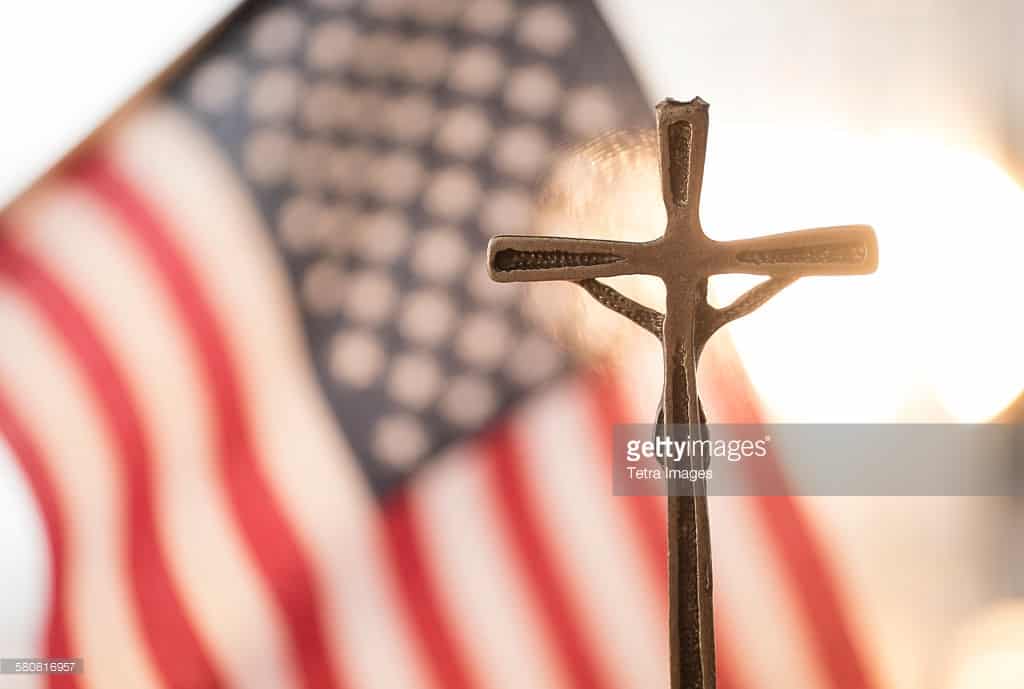If there has been one overused line in the past three weeks, it’s the trope: “The election taught us…”
We didn’t need this election to teach us that our country is polarized or that there is no “Catholic vote.” As commentators have said for years, political polarization shapes the Catholic electorate as much as the general electorate: there is no “Catholic vote,” but rather a “conservative Catholic vote” and a “liberal Catholic vote.”
For decades, the U.S. Church electorate has been divided between “pro-life” and “social justice” camps. For “pro-life” Catholics, abortion defines their political participation, because abortion touches upon the key issue of respect for life. “Social justice” Catholics are interested in a broad range of issues stemming from their commitment to protecting the human person against violations of their rights.
Stated thusly, the two camps seem to have a great deal in common. But pro-life and social justice Catholics tend to be distinguished not just by the policies they emphasize, but by their partisan preferences. Pro-life Catholics have found a home in the GOP, and social justice Catholics tend to be Democrats. The two groups, in other words, have allowed themselves to be defined by our two-party system.
There is no question that the two parties have divvied up the Catholic vote, as Bishop Robert McElroy of San Diego noted recently:
“The central issues of Catholic social teaching that our society faces at the present moment really bifurcate the partisan divide in our nation,” said McElroy. “The Democratic Party emphasizes certain of those teachings and embodies them more fully, and the Republican Party embodies others. Because political leaders are forced into those partisan molds, particularly during partisan campaigns, they often don’t reflect the spectrum of Catholic social teaching to a great degree.”
This division was starkly illustrated by the platforms of the vice-presidential candidates. While they were both strongly influenced by Catholicism, it seemed to be their political ideologies that determined which teachings of the Church they did – and did not – embrace.
A common argument for distinguishing the two sets of issues is to treat opposition to abortion as a non-negotiable principle, and to see most policy issues related to social justice as negotiable applications of principles.
The trouble is, such arguments tend to sharply divide principles from applications, as though principles were Platonic abstractions floating in the ether with no purchase on reality, and the applications mere observations with little theoretical foundation. It then becomes hard to see how our practice and theory mutually influence one another.
But it has always been the Catholic tradition that political reflection sits squarely between theory and practice. As the Jesuit Social Research Institute notes, Catholic Social Teaching has to be both “organic and systematic,” so as to take stock of “social realities, ethical principles, and application of those principles to current circumstances.”
So what do we gain from accepting the balkanization of the U.S. Church?
Pragmatically, pro-life and social justice interest groups deprive themselves of key allies when they don’t see their causes as mutually related.
Intellectually, both “sides” deprive themselves of the full significance of their own arguments when they treat their causes as isolated policy positions.
Most importantly, treating life and social justice issues as separate has wounded the U.S. Church. Reconciliation between the life and social justice movements needs to be a high priority for the Church in the coming years. In the months to come, most Americans will likely go back to ignoring politics. Yet much rides on keeping citizens engaged beyond “the tired quadrennial debate about whom we can vote for.” Catholics must hold a Trump presidency to its espoused pro-life values, and work towards long-term reconciliation, not short-term goals.
Taking the long view, the Catholic Church cannot depend upon the parties as a credible engine for turning our deepest faith commitments into policy. The parties have gotten us into this mess and are unlikely to get us out of it. Catholics and all people of good will must become better at articulating the basis for what we believe, and how it can translate into a better life for all peoples. This will require pulling away from political modes of thought and recovering yet again what it means to be Christian in the first place.
Indeed, when I wrote about being Catholic and Democrat or Catholic and Republican this past summer, the ensuing debate between our readers revealed the misunderstanding, pain and sadly even hate between the two camps. Reconciliation between pro-life and social-justice Catholics will not be easy. It is a long process that requires building trust, becoming open to criticism, and even being willing to criticize ourselves in the pursuit of love-guided justice. That road will not be easy, but it is more necessary than ever to walk down it.
Yes, there are liberal Catholics and conservative Catholics. But at a time when politics is such a mess, we must pull away from ideological attachments and see ourselves as Catholics. And we must do this not to deny but to affirm the nobility and necessity of politics.


